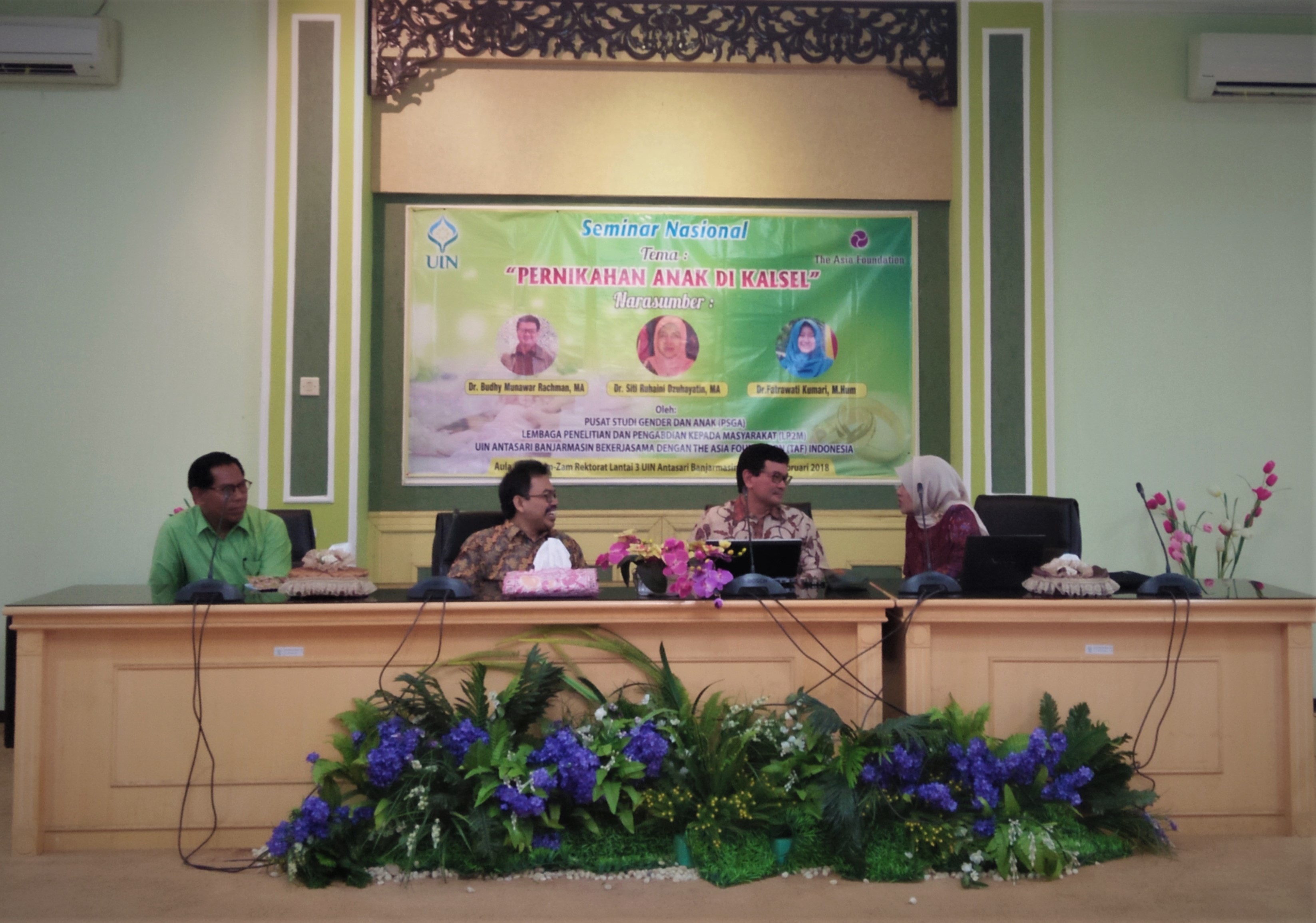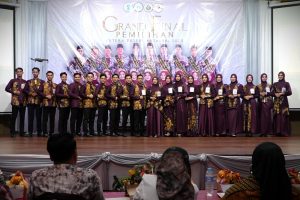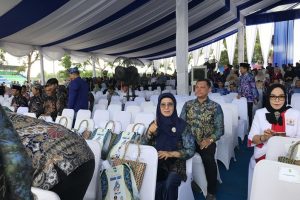
Child Marriage is at ‘Emergency’ Level in South Kalimantan
Child marriage is one of problems faced by Indonesian people. According to UNICEF (2010), Indonesia occupies the second highest rates of child marriage along with other seven ASEAN countries. There are a lot of child marriages in Indonesia including South Kalimantan, which contributes over 33.68% cases; this is higher than national child marriage in 2015, which was only 22.82%.
This phenomena encouraged Center for Gender and Child Studies, LP2M (Research Institute and Community Service Agency) UIN Antasari to study them and hold a national seminar discussing “Child Marriages in South Kalimantan”. The speakers were Dr. Budhy Munawar, MA (Asia Foundation), Dr. Siti Ruhaini Dzuhayatin, MA (UIN Sunan Kalijaga Yogyakarta), and Dr. Fatrawati Kumari, M. Hum (UIN Antasari Banjarmasin). This seminar was attended by the rector of UIN Antasari, Prof. Dr. H. Mujiburrahman, MA., lecturers and students, and representatives of BKKBN (National Population and Family Planning Board) of South Kalimantan, MUI (the Indonesian Ulama Council) of Banjarmasin and MUI of South Kalimantan, Religious Court of Banjarmasin, and Offices of Religious Affairs, South Kalimantan’s Women Empowerment and Child Protection office, Banjarmasin Women Empowerment and Child Protection office, Institute of Child Protection, and school representatives.
The head of UIN Antasari’s Research Institute and Community Service Agency (LP2M), Dr. Yahya MOF, M. Pd. pointed out at child marriages cases in regencies in South Kalimantan. “The data from National Population and Family Planning Boarding (BKKBN) of South Kalimantan mentioned the high child marriage rates in Indonesia. In 2010-2016, child marriages between age 10-14 is 20% and between 15-18 is 46%,” explained Yahya. According to Yahya, Hulu Sungai Utara regency (Amuntai) is the most contributing regency towards the case, followed by Tapin, Hulu Sungai Selatan, Hulu Sungai Tengah, Tanah Bumbu and Kotabaru regencies. UIN Antasari LP2M struggled to educate South Kalimantan society to prevent child marriages through several programs: regular radio broadcasts, researches, and studies of Islamic law (fiqih) for women and children, and seminars.
“This seminar is part of UIN vision, which is to be the center of science integration, locally based, globally connected. Local based agenda is manifested in concerning social problems around us. One of them is child marriages in South Kalimantan, “ stated the rector in his speech. This is part of community services based on scientific researches, he added.
The seminar was opened by Dr. Budhy who presented data in 2014 in which 25% of children get married under age 18. “There are 37 countries dealing with the same kind of problem, and Indonesia has the 10th highest number of child marriage.” declared Budhy. This is worse because the Constitutional Court of the Republic of Indonesia rejected the change in Law No. 1 of 1974 on Marriage. The Constitutional Court rejected to raise the minimum age limit for female children to get married which made child marriage rate in Indonesia even higher. Meanwhile, Dr. Siti Ruhaini Dzuhayatin explained that child marriage is related to three things: family, funding, and fate (nasab, nisab, dan nasib). “The relation between child marriage and child sexual relationship should be reexamined. Child marriage mostly happens in Asian countries while child sexual relationship happens in the West. Therefore, parents role is very crucial in this case, “ said Siti Ruhaini, the former head of human right of Organization of Islamic Cooperation (OIC).
According to Fatrawati, parents in South Kalimantan believe that marrying their children is not only for the sake of love but also to prevent adultery. “Child marriages in South Kalimantan happen because of those ethics that eventually lead to the habituation of child marriage, in which South Kalimantan contributes the highest rate in Indonesia, “ explained Fatrawati. This seminar, in conclusion, is expected to educate stake holders in South Kalimantan to prevent child marriage. (pr)



